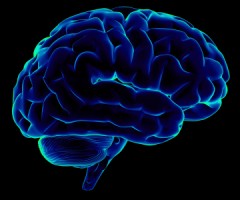Recess is an important time of day when children can run around the playground with their friends, unconcerned with anything other than moving around and having fun. Current research shows that physical activity during recess and other parts of the day improves attention span, memory, learning, and reduces the effects of attention-deficit hyperactivity disorder.
Phillip Tomporowski, Ph.D. professor of exercise science at the University of Georgia, says much of the research today seems to negate the old notion that recess sends kids back to class more hyper and rowdy. “It appears to be the other way around,” he says. “They go back to class less boisterous, more attentive, and better behaved compared with kids who have been sitting in chairs for hours on end.” Charles H. Hillman, Ph.D., an associate professor of kinesiology and community health at the University of Illinois at Urbana-Champaign tested that notion in a study published this year in which he found children had more accurate responses on standardized tests when they were tested after moderate exercise, as opposed to being tested after 20 minutes of sitting still. His results lend support to the idea that just being aerobic during recess helps boost kids’ learning skills and attention spans. In experimental studies, Pellegrini and Davis (1993) and Pellegrini, Huberty, and Jones (1995) found that elementary school children became progressively inattentive when recess was delayed. Olga Jarrett, Ph.D. a professor of child development at Georgia State University conducted a study on how recess affects academic performance and found that 4th graders were more on-task and less fidgety in the classroom on days when they had had recess, with hyperactive children among those who benefited the most. According to a large study of third-graders conducted by Romina M. Barros, MDat Albert Einstein College of Medicine of Yeshiva University school children who receive more recess behave better and are likely to learn more. Dr. Barros found that, among 8- to 9-year-oldchildren, having 1 daily recess period of >15 minutes in length was associated with improved learning.
Memory retention and learning functions are all about brain cells actually changing, growing, and working better together. “Exercise creates the best environment for this process to occur,” says John Ratey, M.D. an associate professor of psychiatry at Harvard Medical School in Boston. Exercise stimulates our grey matter to produce what Ratey calls “Miracle-Gro” for the brain. Exercise builds up the body’s level of brain-derived neurotrophic factor or BDNF, which causes the brain’s nerve cells to branch out, join together and communicate with each other in new ways. Hilman published a study in which he found a relationship between exercise and academic performance in elementary school children. “Exercise improves attention, memory, accuracy, and how quickly you process information, all of which helps you make smarter decisions,” says Hillman. In a study published the same year in the Research Quarterly for Exercise and Sport, researchers found that children ages 7-11 who exercised for 40 minutes daily after school had greater academic improvement than same-aged kids who worked out for just 20 minutes. The California Department of Education conducted a study that showed that children who are physically active score higher on the Stanford Achievement Test. Laura Chaddock, Ph.D. and her colleagues from the University of Illinois recently found an association between physical fitness and the brain in 9- and 10-year-old children. Those who are more fit tend to have a bigger hippocampus and perform better on a test of memory than their less-fit peers. The hippocampus is a brain area involved in memory and spacial navigation. In addition, the fit children performed better on tests of relational memory, or the ability to recall connections between things.
Researchers are realizing that the mental effects of exercise are far more profound and complex than they once thought. So whether at school or at home, make sure your child is reaping the benefits of physical exercise.







Pingback: Reading trumps recess at MCCSC Elementary Schools « MCCSC – here's what I think……